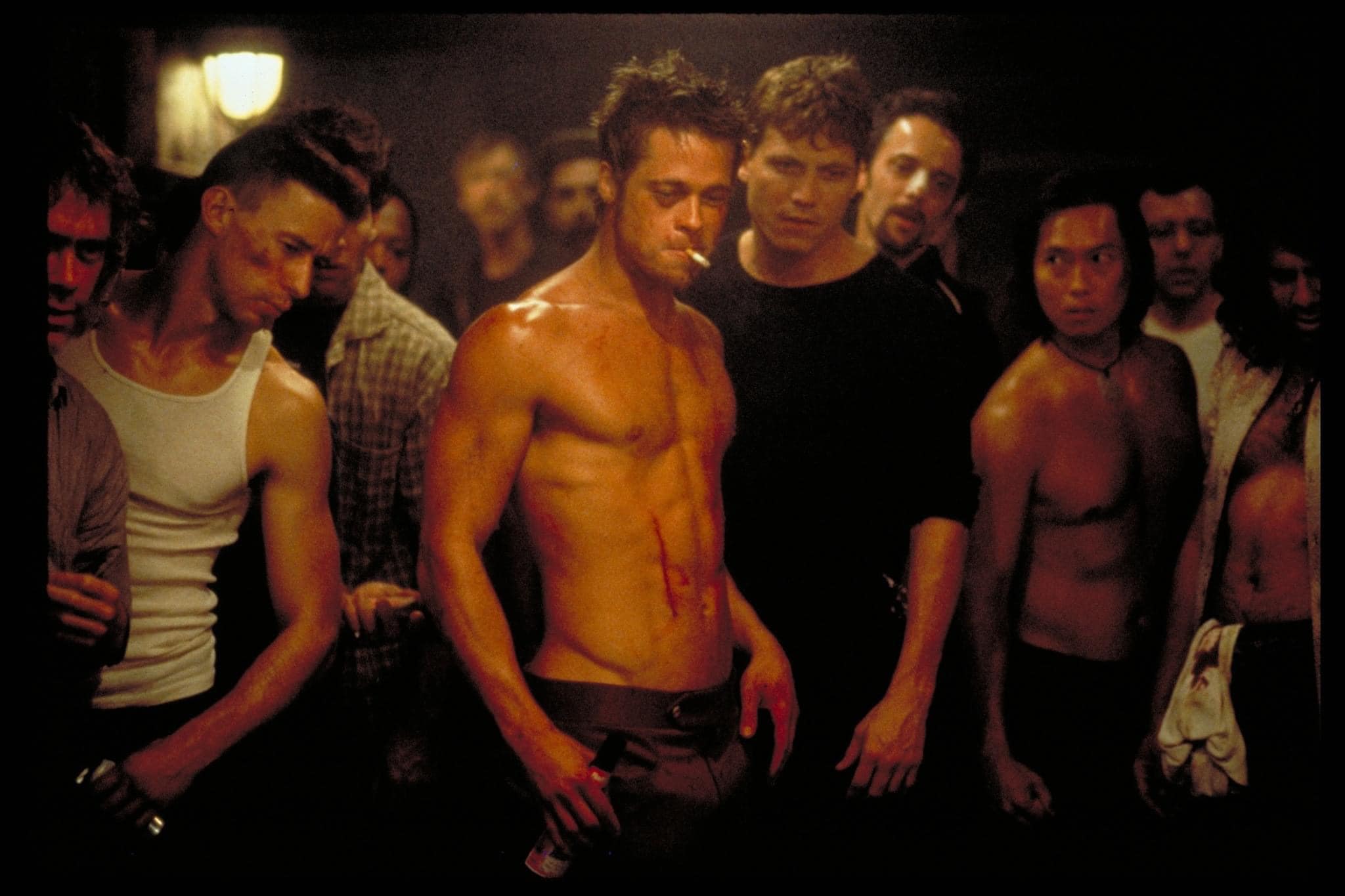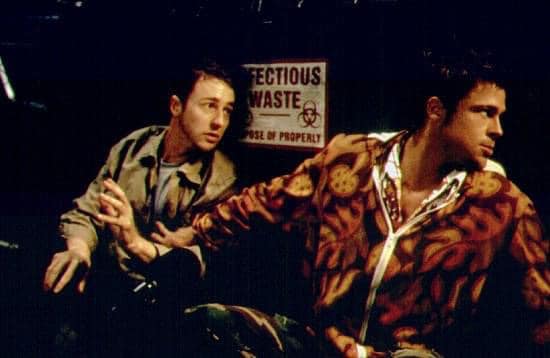Fight Club (1999)

Title: Exploring the Themes and Meaning of Fight Club (1999)
Fight Club (1999), directed by David Fincher and based on Chuck Palahniuk’s novel, is a provocative film that explores themes of consumerism, identity, and rebellion. Starring Edward Norton as the unnamed narrator and Brad Pitt as Tyler Durden, the film delves into the psyche of modern man, disillusioned by a materialistic and conformist society.
At its core, Fight Club is about the crisis of identity faced by men in a world driven by consumer culture. The narrator is trapped in a monotonous corporate job, surrounded by IKEA furniture and empty material possessions that fail to bring fulfillment. His meeting with the charismatic and anarchistic Tyler Durden awakens his suppressed desire to break free from societal norms. Tyler preaches a philosophy that encourages men to embrace their primal instincts, leading them to form Fight Club—a secret underground group where men fight to reclaim a sense of power and masculinity.

The film critiques the emptiness of consumerism, suggesting that people often lose themselves in the pursuit of material goods and societal approval. Tyler’s anti-establishment views offer an alternative to the narrator’s passive, controlled existence, but they also reveal the dangers of extremism. As Fight Club spirals into chaos with the creation of Project Mayhem—a group bent on dismantling society—the film highlights the destructive consequences of rejecting structure without offering a sustainable alternative.
One of the most intriguing aspects of Fight Club is its exploration of duality and identity. The relationship between the narrator and Tyler represents the struggle between conforming to societal expectations and breaking free from them. Tyler embodies the narrator’s repressed desires for freedom and rebellion, but as the film progresses, it becomes clear that the narrator and Tyler are two sides of the same person. This twist forces viewers to question their own perceptions of self and the influence of society on identity.












